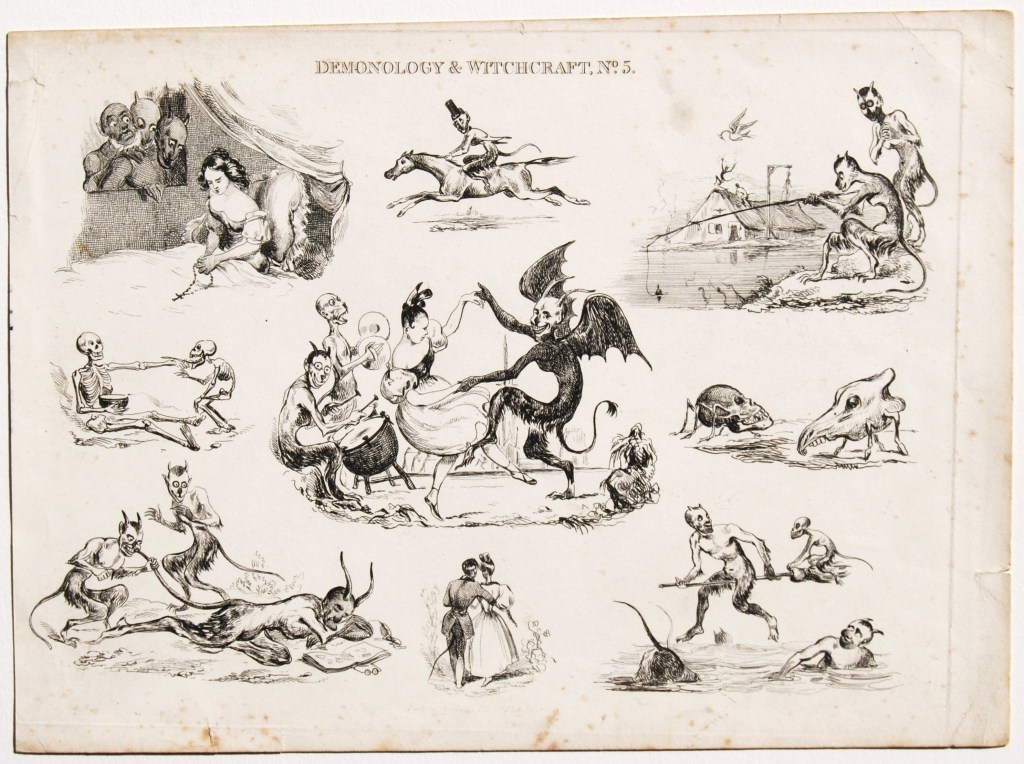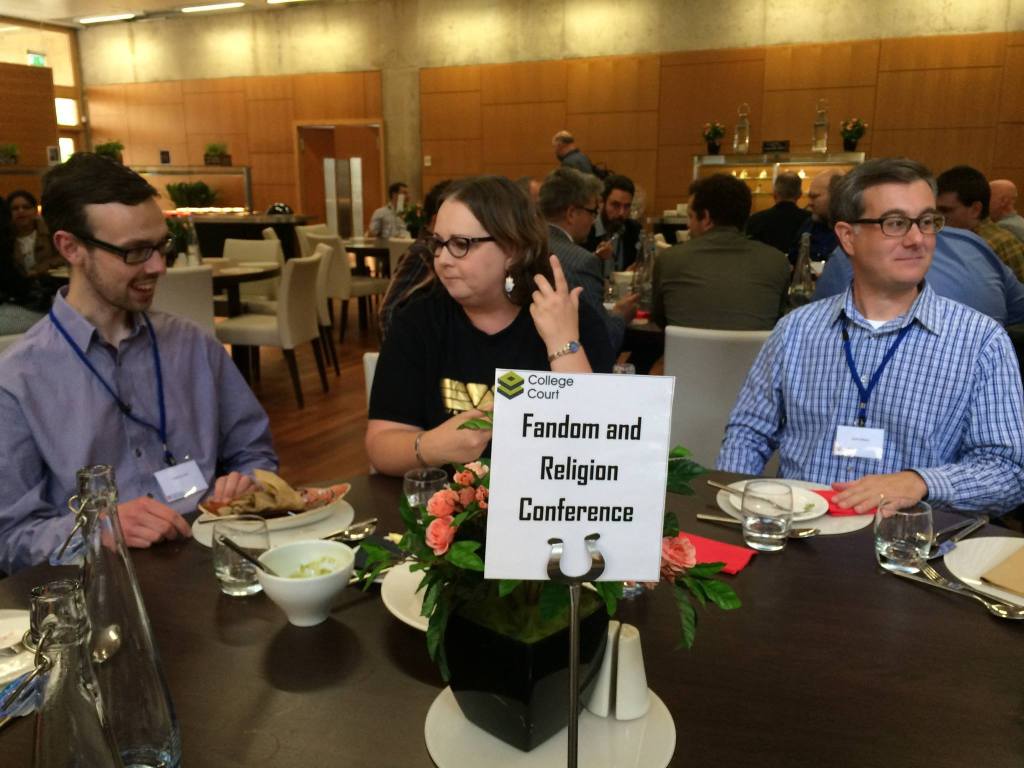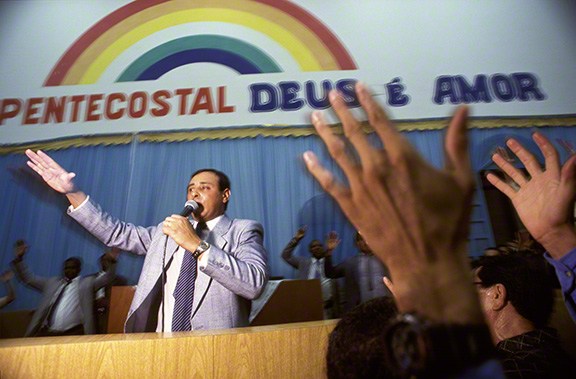Futures Found Wanting

Figured as discursive objects, both the witch and the UFO exceeded (or were thought to exceed) the epistemic capacities of contemporary knowledge, necessitating the creation of new forms of knowing.In her recent book on confession and witchcraft in early modern France, French Studies scholar Virginia Krause argues that early modern demonology was a ‘science of the night’.The activities of the Devil, and of the witches who served him, occurred in the darkest hours,…
Not In That Dead Body

Significantly more people are willing to entertain the plausibility of reincarnation than are likely to wholeheartedly adopt reincarnation into their existing belief structure.
Interdisciplinary pioneers of otherwise uncharted territory in the (CSR) are apt to ask some of the most provocative yet fundamental questions of human existence. These questions extend not only across the lifespan, but also into the realm of continued existence after death.
Gender-as-Lived: Considerations in Ethnographic Methodology

Fedele emphasizes that an academic researcher must acknowledge the power issues present in a researcher-interviewee relationship: the academic doesn’t know everything, nor is the participant ignorant.
In the Religious Studies Project’s recent interview with Dr. Anna Fedele, Dr. Fedele and her interviewer discuss several aspects of interest related to the intersections of gender, religions, and power dynamics. Fedele’s book, Gender and Power in Contemporary Spirituality: Ethnographic Approaches (Routledge, 2013), …
(Buddhist) Mission to Burma: Dhammaloka, Lokanatha, and Early Western Converts to Buddhism

These early encounters between Buddhism and the West play havoc with many of the dominant models used to understand Buddhism in the West over the last several decades.
I first met Laurence Cox and the figure of Dhammaloka in 2012 at a conference at University College Cork in Ireland titled “Pioneer European Buddhists and Asian Buddhist Networks.
Encounters Between Buddhism and the West

In this story is a continuation of “dissident orientalism”, a conflict inherent within the colonial project wherein communities and personal trajectories become embedded within local religious contexts. A distinction made, both in Ireland and Burma, between native religion and the religion of the coloniser serves …
Conference Report (and rant): Fandom and Religion, Leicester, 2015

Conference report for The Religious Studies Project by our very own Venetia Robertson, RSP Editor and a PhD candidate at the University of Sydney.
The University of Leicester hosted the Fandom and Religion conference this July 28-30 in affiliation with the Theology, Religion and Popular Culture network. A reasonably small conference with just over 30 presenters and 50 attendees, organisers Clive Marshall and Isobel Woodcliffe of Leicester’s Lifelong Learning Centre ran the event smoothly
Learning to Unlearn “Religion”: Jason Ānanda Josephson on the Invention of Religion in Japan

Would it be better to say “Japanese Religions”? How about “religions of Japan”? Or, is “religion” even the best word to use to describe the Japanese traditions we’re studying?
One of the first Religious Studies courses in which I enrolled was titled “Japanese Religion.” There were several themes running through the course, but the one that stuck with me as the most important was something the professor asked during the first meeting of the class:
Sufism is a paradox?

While the tendency to think of Sufism as a kind of individualized or more private form of Islam is quite prevalent, the representation of Sufism as a form of ‘peaceful Islam’ or as a ‘solution’ to the ‘problem’ of radical Islam is equally pervasive.
In his interview with the Religious Studies Project, Milad Milani gives a thoughtful overview of the tradition of Sufism, answering big questions such as: what is Sufism, how did it emerge historically (see Milani 2013),…
The Faith of the Killable: A Faith for Empowerment?

This framework of socioeconomic disparity and violence is key to understand how entire population sectors in Río become and remain killable people, and to assess the serious restraints that inmates who proceed from these sectors will face again, once their time in prison is finished.
As one listens to Dr. Johnson describe the high homicide rates of Río de Janeiro, the gap in between the haves and the have nots, as well as the appalling conditions he witnessed –through use of an admirable methodology– in this city’s prison system, …
Demons, Exoticism, and the Academy

demons and spiritual warfare aren’t something that snake handlers invented just yesterday, it is a major thread woven through the entire history of Christianity, and one that continues to be woven through it today.
Something that strikes me about contemporary spiritual warfare is how it’s not so radically different thematically in its interests and its languages than a lot of contemporary American religion.
Heavy Metal as Religion and Secularization as Ideology

“Social science, more than any other branch of science, is prone to the undesired influence of philosophical and ideological perspectives. The question is, then, how should social scientists deal with ideologically-infused theories without glossing over the ideologies behind them? I don’t have a straightforward answer to this question, but I can refer to Gauthier’s nuanced approach to studying neo-liberalism, which he outlines in his interview.”
Religion, Neoliberalism and Consumer Culture

According to Gauthier, it is important to note is that religious activity of the day is not haphazard or random pick-and-choose at all. Instead, it is following a new kind of logic, that of consumerism. Marketization and commodification among other phenomena are affecting the field of religion – and vice versa. Listen and find out more!
Religion, Secularism and the Chaplaincy

“As Sullivan and other religious studies scholars complicate terms like religion and secularism, reducing these terms to near incoherence, and insist on the constant intermingling of the sacred and the secular, they leave jurists and legislators in a predicament with important practical consequences.”
A Word by Any Other Name: The Emergent Field of Non-religion and the Implications for Social Meaning

“As I write this response, I find myself in an inner struggle as a Social Scientist. In one sense Dr Lee’s podcast and my subsequent response beg a question of causation. For me the question has its origins in the psychological. Does atheism and/or agnosticism lead to secularization and by proxy non-religious systems of meaning? Or as a social movements continue to gain adherents, do we see a diffusion of new ideas.”
The Faith-Spangled Banner: Changes in American attitudes and belief in all directions

In contemplating a response to Prof Ariela Keysar’s interview with the Religious Studies Project over her work as Associate Director of ISSSC and its most famous endeavour, ARIS, I was struck by the dilemma faced when introducing myself to people here in the UK and telling them where I am from. The replies range from everywhere and between,
